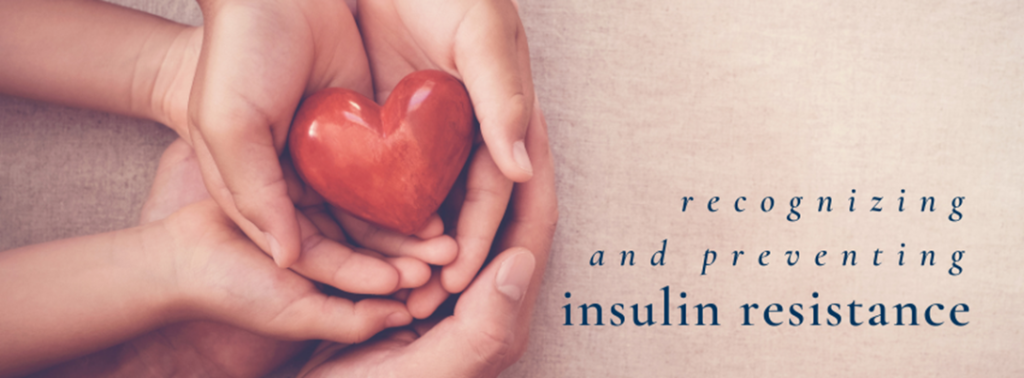
Somewhere between high blood sugar and full-blown diabetes lives a trait called insulin resistance (Maurer). Not only can insulin resistance contribute to diabetes, it also greatly increases your chances of weight gain and heart disease. Your body is not pre-destined for insulin resistance; rather, it’s a condition within your realm of control. It is an indicator that something more serious could be on your horizon, and also a warning sign to make preventative changes.
“After you eat, a hormone called insulin helps move glucose from your blood into your cells (4, 5). When your body (specifically the muscles, fat, and liver) doesn’t respond as easily to insulin, too much glucose remains in the blood, resulting in what we call high blood sugar. If this happens consistently and your body is unable to keep your blood sugar levels in check, you are considered insulin resistant (4).” (Vellenga).
While insulin resistance sometimes presents as asymptomatic, here are some common symptoms to watch for from high blood sugar to pre-diabetes (Cleveland Clinic):
- Increased thirst.
- Frequent urination (peeing).
- Increased hunger.
- Blurred vision.
- Headaches.
- Vaginal and skin infections.
- Slow-healing cuts and sores.
When experiencing these symptoms, a treatment plan from a conventional medical perspective might be to treat what’s obvious – specifically the high blood sugar. However, from a naturopathic perspective, we look at and treat the underlying causes of the symptoms.
I offer some specific testing that can detect insulin intolerance before it becomes something more severe. And based on the results, together we will come up with a treatment plan that works in conjunction with the recommendations from your allopathic doctor and also protocols we can try from a naturopathic perspective such as:
- Dietary Interventions
- Herbal Supplementation
- Movement/ Exercise Suggestions
Curious if insulin intolerance is taking a toll on your present and future health?
If you live in the Guilford/ Branford/ New Haven/ Madison/ Clinton area and would like to learn more about integrative solutions for your health care needs, I can help you get to the root of your symptoms by promoting health and healing on all levels – physically, emotionally and spiritually. Call (203) 453-0122 or CLICK HERE to schedule a consultation.
REFERENCES
“Insulin Resistance: What It Is, Causes, Symptoms & Treatment.” Cleveland Clinic, https://my.clevelandclinic.org/health/diseases/22206-insulin-resistance.
Maurer, Richard. “Insulin Resistance: Disease or Superpower?” Naturopathic Doctor News and Review, Naturopathic Doctor News and Review, 20 Mar. 2019, https://ndnr.com/endocrinology/insulin-resistance-disease-or-superpower/.
Vellinga, Jonathan. “Insulin Resistance, Diabetes, and Functional Medicine.” TCIM, TCIM, 20 July 2021, https://www.tcimedicine.com/post/insulin-resistance-diabetes-and-functional-medicine.



